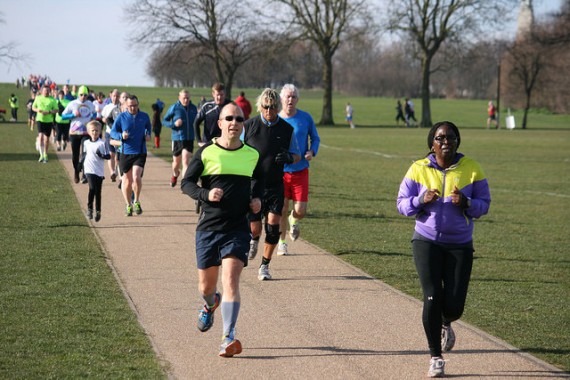More than one in four people in England (28 per cent) do less than 30 minutes of physical activity a week.
But research shows that those who do the least activity stand to benefit the most, even if it’s just small changes like gentle jogging, swimming or playing rounders in the park.
As well as continuing to support people who already play sport, there will be a much greater emphasis on groups who are typically much less active such as women, disabled people and those from lower-socio-economic backgrounds.
Read the new strategy Towards an Active Nation.
The strategy will help deliver against the five health, social and economic outcomes set out in the Government’s Sporting Future strategy.
Key features of the new strategy are:
- Dedicated funding to get children and young people active from the age of five, including a new fund for family based activities and offering training to at least two teachers in every secondary school in England to help them better meet the needs of all children, irrespective of their level of sporting ability
- Working with the sport sector to put customers at the heart of everything they do, and using the principles of behaviour change to inform their work
- Piloting new ways of working locally by investing in up to 10 places in England – a mix of urban and rural areas
- Investing up to £30m in a new volunteering strategy, enabling more people to get the benefits of volunteering and attracting a new, more diverse range of volunteers
- Helping sport keep pace with the digital expectations of customers – making it as easy to book a badminton court as a hotel room
- Working closely with governing bodies of sport and others who support people who already play regularly, to help them become more efficient, sustainable and diversify their sources of funding.
Sport England’s chief executive Jennie Price says: “Week in, week out, sport and activity plays an important role in the lives of millions of people in England. This strategy sets out how Sport England will continue to support them. ”
“And in the next four years we’re going to dedicate more time, expertise and over £250 million to tackling inactivity. We will be the single largest national investor in projects for people to whom sport and physical activity is a distant thought, or not even on their radar.
“Customers – the people who play sport and are active or who might be in future – will be at the heart of everything we do. It’s by putting them first that we’ll be best able to build a more active nation.”
Sports minister David Evennett says: “We want to use the unique power of sport to benefit more people’s lives. Sport can bring communities together, improve physical and mental wellbeing and make a significant contribution to the economy.
“Sport England has a crucial role to play in helping us become a healthier, happier nation. As well as getting inactive people involved we want to give children a great experience of sport at an early age, encouraging them to participate through life and enjoy all the positives sport brings.”
Sport England received over 1000 responses to its consultation, including feedback from national governing bodies of sport, local authorities, charities and voluntary organisations. Overwhelmingly, respondents welcomed the direction set by Sporting Future and encouraged Sport England to make bold choices in setting its new strategy.
“This feels to me like a watershed moment, this long awaited directional change in strategy,” says Nick Pearson, chief executive of parkrun Global.
“It will encourage organisations to focus in areas that we know make a difference.
“At parkrun, we particularly welcome the extra investment into volunteering, into tackling inactivity and focussing on the next generation through extending the scope of investment to include 5-14 year olds.”
Chief Medical Officer, Professor Dame Sally Davies says: “We know that inactivity harms your health. If physical activity was a medicine we would talk about it as the miracle cure – it has the ability to prevent a wide range of long term conditions, from dementia to cancer. I welcome this new strategy from Sport England and their valuable contribution to getting all of England moving more.”






